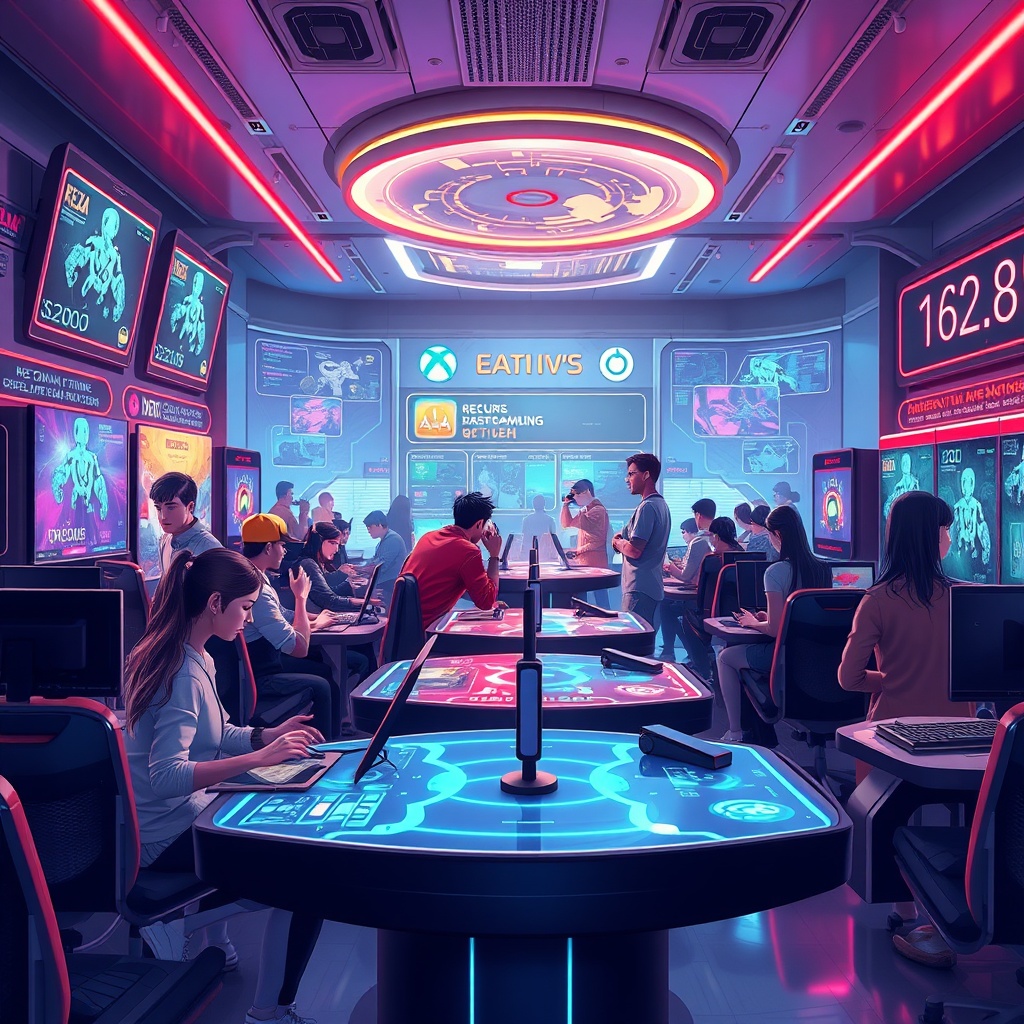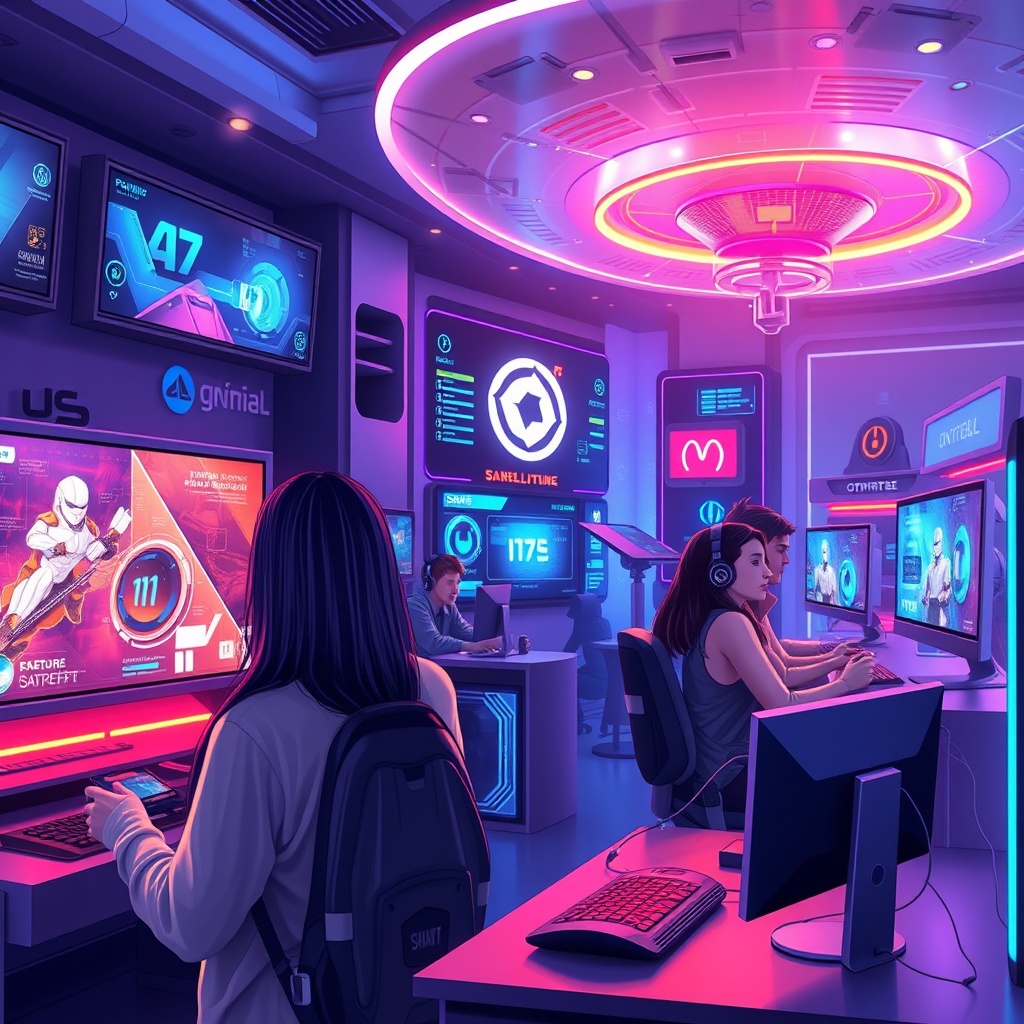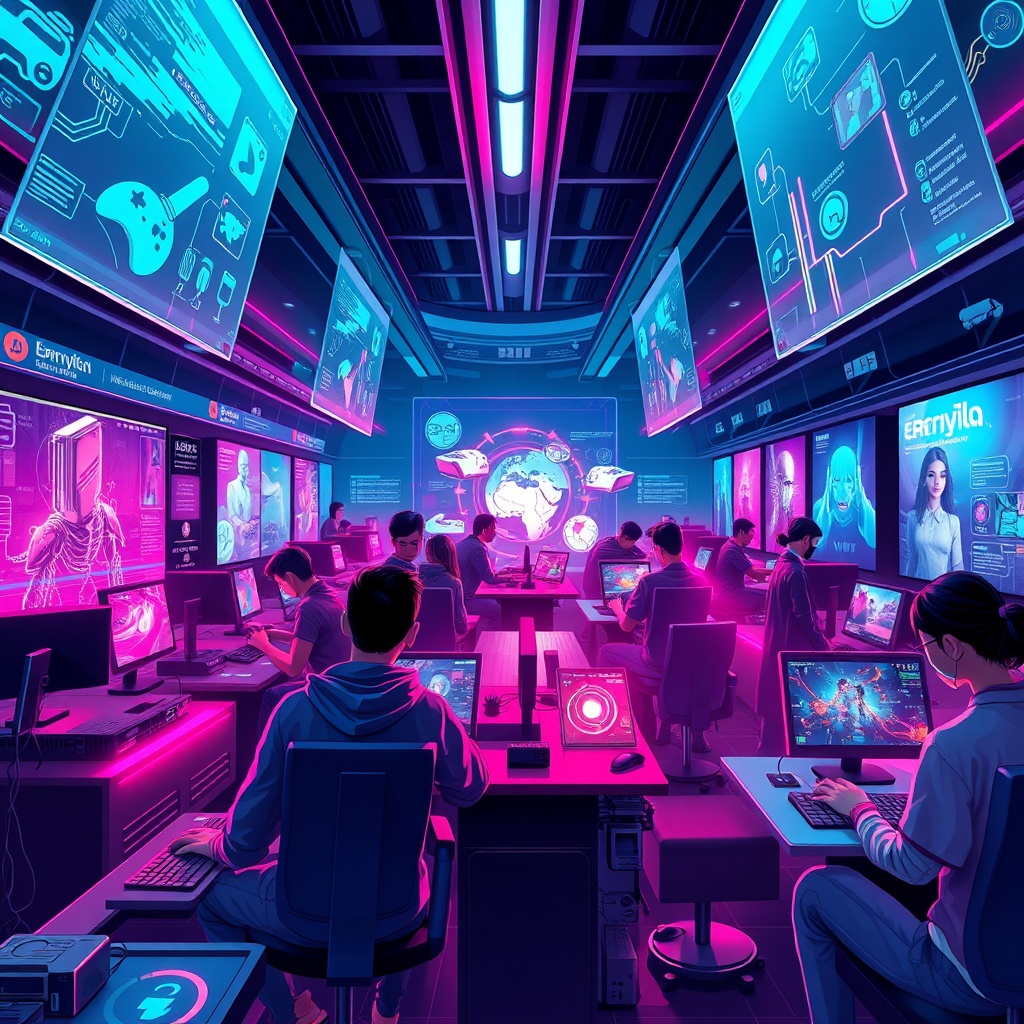The gaming industry is undergoing a transformative shift, fueled by technological advancements and changing consumer preferences. Decentralized platforms, which leverage blockchain technology, are at the forefront of this evolution. These platforms enable gamers to share hardware resources and access cloud gaming services, creating a more equitable and accessible gaming environment.
Empowering Gamers Through Hardware Sharing

Decentralized hardware sharing platforms empower gamers to optimize their gaming experience without the burden of expensive hardware purchases. By allowing users to lend and borrow gaming equipment, these platforms foster a community-oriented approach to gaming. Participants can benefit from high-performance hardware without the financial constraints, creating a more inclusive ecosystem.
Imagine a scenario where gamers can share their consoles, VR headsets, or high-end PCs with others in their community. This innovative model not only reduces costs but also encourages collaboration among gamers. Users can earn rewards or tokens for sharing their equipment, thus incentivizing participation while promoting sustainable consumption.
Cloud Gaming: Accessing Power at Your Fingertips

Cloud gaming has emerged as a game-changer, allowing players to access powerful gaming resources remotely without the need for high-end local hardware. Decentralized cloud gaming platforms leverage distributed computing to deliver seamless gaming experiences, enabling users to play high-quality games on various devices, from smartphones to low-spec PCs.
These platforms provide a unique solution for gamers who may not have access to the latest hardware. By connecting to a network of powerful servers, users can enjoy an extensive library of games with minimal latency. Moreover, decentralized cloud gaming systems often employ peer-to-peer technologies, ensuring that users can contribute their unused computing power to the network, further enhancing the overall gaming performance.
Key Comparisons and Considerations
As the landscape of gaming continues to evolve, it is essential for gamers and investors alike to understand the implications of decentralized platforms. Below is a comparison of traditional gaming models versus decentralized platforms:
- Ownership: Traditional models require outright purchase of hardware, while decentralized platforms encourage shared ownership.
- Costs: Decentralized platforms reduce upfront costs for gamers by facilitating shared access to hardware.
- Accessibility: Cloud gaming allows users to play high-end games on lower-spec devices, breaking barriers to entry.
- Community Engagement: Decentralized platforms promote collaboration among gamers, fostering a sense of community.
As these models continue to develop, it remains crucial for industry stakeholders to consider how they can leverage decentralized technologies to enhance user experience and drive growth.





